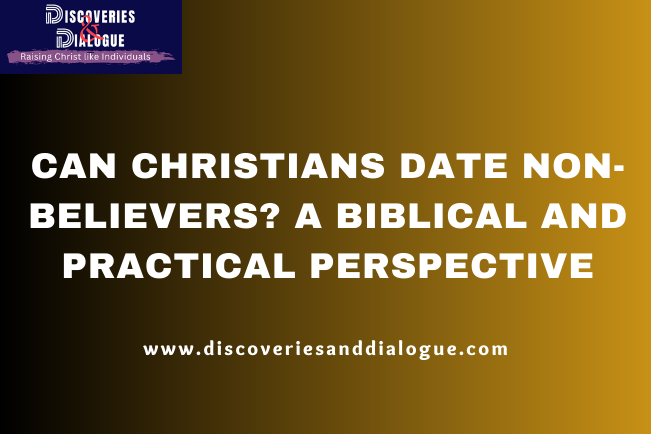
Debunking Common Myths About Christianity: What the Bible Really Says
Christianity often faces criticism and misunderstanding due to deeply entrenched misconceptions that circulate widely in public discourse.
These myths, while popular, often emerge from partial truths, cultural stereotypes, or isolated negative experiences rather than a thorough examination of the faith’s teachings, history, or the Bible itself.
For instance, terms like “strict rules,” “judgmental Christians,” or “anti-science” frequently dominate conversations about Christianity, creating an image that is far removed from the richness and diversity of the faith.
These narratives are further reinforced by media portrayals, personal anecdotes, and societal shifts that often prioritize skepticism over understanding.
However, when examined critically, many of these claims reveal a lack of depth. They fail to consider the historical role Christianity has played in shaping justice systems, promoting education, and advancing scientific discovery.
Moreover, they overlook the theological and spiritual depth that provides hope, purpose, and meaning to billions of people worldwide.

Debunking Common Myths About Christianity
- Christianity often faces criticism and misunderstanding due to deeply entrenched misconceptions that circulate widely in public discourse.
- These myths, while popular, often emerge from partial truths, cultural stereotypes, or isolated negative experiences rather than a thorough examination of the faith’s teachings, history, or the Bible itself.
In this exploration, we aim to address these misconceptions through three lenses:
- Biblical Teachings: What does Scripture actually say about these topics?
- Historical and Sociological Insights: How has Christianity influenced and interacted with society over time?
- Scientific and Philosophical Evidence: Can faith and reason coexist in a meaningful way?
By diving into these perspectives, we can uncover the truth behind the myths, dispel misunderstandings, and present Christianity not as an outdated set of beliefs but as a faith deeply rooted in love, grace, and intellectual richness.
Whether you’re a skeptic, a seeker, or someone looking to deepen your understanding, this exploration offers a thoughtful and well-rounded perspective on the common myths surrounding Christianity.
Myth #1: Christianity is Just a Set of Strict Rules
The idea that Christianity is all about following a rigid list of dos and don’ts often misrepresents the heart of the faith. This myth portrays Christians as burdened by oppressive rules, leaving no room for freedom, individuality, or joy. However, the Bible tells a much different story—one that is centered on life, purpose, and freedom.
In John 10:10, Jesus declares, “I have come that they may have life and have it to the full.” This verse is a cornerstone of Christian teaching, emphasizing that Jesus came to give us a life of abundance—not one weighed down by restrictions. The “fullness of life” Jesus speaks about encompasses joy, peace, purpose, and meaning, all of which are gifts of a relationship with God.
Christianity: Guidance, Not Restriction
Rather than imposing meaningless rules, Christianity provides guidance that helps individuals flourish. Psychologist Martin Seligman, a pioneer in the field of positive psychology, highlights that human happiness and well-being are deeply tied to having a sense of purpose and meaning. Christianity offers exactly that—a roadmap for living a life grounded in love, service, and integrity.
The Ten Commandments, found in Exodus 20, are often seen as the epitome of religious rules. But biblical scholars, like N.T. Wright, explain that these commandments were given within the context of a covenant relationship between God and His people. They were not intended to oppress but to establish a foundation for justice, compassion, and harmony in community life. For example, commandments such as honoring parents, refraining from lying, and not coveting promote respect and fairness, fostering relationships built on trust and love.
Freedom Through Obedience
Interestingly, the Bible teaches that true freedom is found within the boundaries of God’s guidance. Galatians 5:1 says, “It is for freedom that Christ has set us free. Stand firm, then, and do not let yourselves be burdened again by a yoke of slavery.” Here, Paul reminds us that Christianity is about liberation—freedom from sin, guilt, and destructive behaviors that enslave us.
When viewed through the lens of love and relationship, the “rules” of Christianity become less about restriction and more about protecting and nurturing what truly matters: our connection with God and others. It’s like the guardrails on a winding mountain road—they’re not there to limit our journey but to ensure we arrive safely at our destination.
A Life of Joy and Meaning
Christianity ultimately invites believers into a life that is meaningful, joyful, and deeply fulfilling. By embracing God’s guidance, Christians are not confined but set free to live as they were created to—reflecting love, grace, and purpose in every area of life.
This myth, when dispelled, reveals the heart of Christianity: a relationship with God that leads to a flourishing life, not a list of oppressive restrictions.

Subscribe To Our Newsletter
Get notified about new releases, don’t miss out on anything. Stay updated
Myth #2: Christians Can’t Have Fun
There’s a popular stereotype that Christians are overly serious and lead boring lives, avoiding fun and excitement in favor of strict discipline. This couldn’t be further from the truth. The Bible, Christian traditions, and even sociological studies reveal that joy and celebration are integral to the Christian faith.
Joy Is a Core Principle of Christianity
The Bible consistently teaches that joy is central to a relationship with God. Psalm 16:11 states, “In your presence there is fullness of joy; at your right hand are pleasures forevermore.” This verse illustrates that true joy comes from being in God’s presence—a joy that surpasses temporary pleasures and leads to deep, lasting fulfillment.
Jesus himself affirmed this truth. In John 15:11, He told His disciples, “I have told you this so that my joy may be in you and that your joy may be complete.” Christianity doesn’t call believers to reject joy but to embrace a deeper, more meaningful form of it—a joy that flows from knowing and walking with God.
Historical Roots of Christian Celebration
Far from being a joyless tradition, Christianity has a rich history of festivals, feasts, and communal gatherings. Christian holidays such as Christmas and Easter are celebrated worldwide with music, food, and community activities. These events remind believers of God’s goodness and encourage them to rejoice together.
Historical records, as documented by sociologist Rodney Stark in The Rise of Christianity, reveal that early Christians were known for their communal feasts and celebrations. These gatherings not only strengthened bonds within the community but also attracted outsiders, contributing to the rapid growth of Christianity. Fun and fellowship were integral to the faith, showing that Christians valued joy as an expression of their relationship with God and each other.
Positive Psychology and Christian Joy
Modern research in positive psychology aligns with these biblical principles. Studies show that meaningful relationships, gratitude, and a sense of purpose—core aspects of the Christian faith—are key contributors to happiness and well-being. For instance, regularly gathering with others, as Christians do in worship and celebration, fosters a sense of belonging and enhances emotional health.
Christian joy isn’t just about personal happiness; it’s about living a life of gratitude, service, and connection. When Christians celebrate, they reflect the joy of their Creator and share that joy with others.
Fun and Faith: A Perfect Pair
Jesus’ life and ministry further demonstrate that Christianity embraces fun and fellowship. His first recorded miracle was turning water into wine at a wedding feast (John 2:1-11), ensuring the celebration could continue. This act was not only practical but symbolic, showing that God values joy and community.
Christianity doesn’t suppress fun—it redefines it. Fun is no longer about fleeting pleasures or superficial experiences but about finding deeper satisfaction in God’s presence, relationships, and purposeful living.
The Heart of Christian Joy
When we understand this, the myth that Christians can’t have fun quickly dissolves. Christianity invites believers to experience life’s joys fully, celebrating with gratitude and purpose. Whether through personal milestones, communal worship, or global traditions, Christians are called to reflect the joy of the Lord in every aspect of life.
So, the next time someone tells you that Christians can’t have fun, remember this: true joy is not about avoiding fun but about embracing the abundant life that God has designed for us.

Debunking Common Myths About Christianity
- Christianity often faces criticism and misunderstanding due to deeply entrenched misconceptions that circulate widely in public discourse.
- These myths, while popular, often emerge from partial truths, cultural stereotypes, or isolated negative experiences rather than a thorough examination of the faith’s teachings, history, or the Bible itself.
Myth #3: Science Disproves Christianity
One of the most enduring myths about Christianity is that science and faith are incompatible. This misconception often fuels tension between faith communities and the scientific world. However, a closer look at history, scripture, and academic research reveals a profound connection between Christianity and scientific inquiry.
The Harmony Between Science and Faith
The Bible itself celebrates the natural world as evidence of God’s handiwork. Psalm 19:1 proclaims, “The heavens declare the glory of God; the skies proclaim the work of his hands.” This verse underscores the idea that studying nature can reveal God’s creative power. Far from being in conflict, science and Christianity can complement one another by addressing different aspects of reality.
Science focuses on understanding how the universe works, while Christianity addresses the deeper questions of why it exists and what it means. These two perspectives, when viewed together, offer a fuller understanding of the world around us.
Christian Foundations of Modern Science
Historically, many of the pioneers of modern science were devout Christians who saw their work as a way to glorify God by uncovering the laws of His creation. For example:
- Isaac Newton, the father of classical physics, believed that his discoveries reflected the order and rationality of God’s design.
- Johannes Kepler, known for his laws of planetary motion, famously wrote, “I am merely thinking God’s thoughts after Him.”
- Gregor Mendel, the father of genetics, was an Augustinian monk whose scientific experiments were rooted in his belief in a divinely ordered universe.
These scientists and many others viewed their faith as the foundation for their scientific endeavors. They understood that their ability to study the universe was a gift from God, who created it with consistency and order.
Scientific Discoveries That Reflect Design
Modern science continues to reveal the complexity and intricacy of creation, often pointing to the possibility of intelligent design. Research from Dr. Alister McGrath, a scientist and theologian, argues that scientific discoveries often enhance, rather than undermine, faith. In his book Science and Religion: A New Introduction, McGrath explains that science and faith are not competing explanations but complementary lenses for understanding reality.
For instance, the fine-tuning of the universe—such as the precise constants that govern the laws of physics—has led many scientists to consider the possibility of a Creator. Physicist Paul Davies has written extensively about the improbability of these constants being random, suggesting that the universe appears to be designed for life.
Biblical Wisdom and Scientific Inquiry
The Bible encourages believers to seek knowledge and understanding. Proverbs 25:2 says, “It is the glory of God to conceal a matter; to search out a matter is the glory of kings.” This verse highlights the idea that exploring and uncovering the mysteries of creation is a noble pursuit that glorifies God.
Jesus himself often pointed to the natural world as a way to illustrate spiritual truths, such as in Matthew 6:26, where He draws attention to the birds of the air and how God provides for them. This integration of creation and divine wisdom shows that science and faith are not adversaries but allies in understanding truth.
Faith and Reason: A Partnership, Not a Conflict
The myth that science disproves Christianity often arises from a misunderstanding of both fields. Christianity is not opposed to reason or discovery; instead, it embraces them as tools for better understanding God’s creation.
As C.S. Lewis famously said, “Men became scientific because they expected law in nature, and they expected law in nature because they believed in a lawgiver.” This belief in a rational, orderly universe—rooted in the Christian worldview—has been the foundation of scientific progress for centuries.
Conclusion
Science and Christianity are not mutually exclusive but are complementary ways of exploring the truth. The Bible’s portrayal of the natural world as a reflection of God’s glory encourages believers to study, understand, and marvel at creation.
When we look at history, scripture, and modern scientific discoveries, it becomes clear that science does not disprove Christianity. Instead, it often deepens our understanding of God’s creativity and majesty, inspiring awe and wonder in the intricate design of the universe.

Subscribe To Our Newsletter
Get notified about new releases, don’t miss out on anything. Stay updated
Myth #4: Christians Are Judgmental and Hypocritical
It’s no secret that some people view Christians as judgmental or hypocritical, and this perception often comes from real encounters where believers fall short of their faith’s ideals. However, while individuals may fail to embody Christian values, the Bible’s teachings make it clear that true Christianity is rooted in love, humility, and grace—not judgment or hypocrisy.
Biblical Call to Humility and Grace
Jesus’ teachings directly confront judgmental attitudes. Matthew 7:1 reminds us, “Do not judge, or you too will be judged.” This is not a call to abandon discernment but to approach others with humility, recognizing our own imperfections.
The Apostle Paul echoes this sentiment in Galatians 6:1, writing, “If someone is caught in a sin, you who live by the Spirit should restore that person gently. But watch yourselves, or you also may be tempted.” The emphasis is on gentleness and self-awareness, reflecting God’s desire for His people to show compassion rather than condemnation.
Jesus Himself modeled this grace in His interactions. When confronted with the woman caught in adultery (John 8:1-11), He didn’t join in condemning her but instead said, “Let any one of you who is without sin be the first to throw a stone at her.” By showing mercy and calling her to a new way of life, Jesus revealed the heart of Christianity: redemption, not judgment.
Hypocrisy: A Human Failing, Not a Christian Principle
The charge of hypocrisy often stems from the gap between what Christians profess and how they sometimes behave. The Bible acknowledges this human failing and warns against it. Jesus rebuked the Pharisees in Matthew 23:27, saying, “Woe to you, teachers of the law and Pharisees, you hypocrites! You are like whitewashed tombs, which look beautiful on the outside but on the inside are full of the bones of the dead and everything unclean.”
This strong language highlights how God values authenticity and integrity over outward appearances. Christians are called to live in alignment with their faith, not to pretend perfection.
Understanding Perceptions: Research on Judgment and Care
Negative perceptions of Christians as judgmental are often based on isolated experiences rather than the teachings of the faith. The Barna Group, a leading research organization on religion, conducted studies revealing that while some people view Christians as judgmental, many others experience Christian communities as deeply caring.
For example, Christians have historically been at the forefront of humanitarian efforts, from building hospitals and schools to leading disaster relief initiatives. Organizations like World Vision, Habitat for Humanity, and the Salvation Army are faith-driven, demonstrating Christianity’s call to love and serve others.
These actions align with James 1:27, which says, “Religion that God our Father accepts as pure and faultless is this: to look after orphans and widows in their distress and to keep oneself from being polluted by the world.” Christianity, when lived out authentically, is about selfless care and compassion for others.
Why the Myth Persists
This myth often lingers because of unmet expectations or high standards placed on Christians. People expect Christians to act as perfect representatives of their faith, but the reality is that Christians, like everyone else, are human and fallible.
Christianity acknowledges this imperfection. Romans 3:23 says, “For all have sinned and fall short of the glory of God.” The difference is that Christians rely on God’s grace to grow and transform, rather than on their own perfection.
The Truth About True Christianity
True Christianity is not about condemnation but about extending the same grace that God gives to humanity. Christians are called to reflect God’s love in their relationships, embracing humility and showing compassion.
When Christians live out the teachings of Jesus authentically, they embody the values of kindness, service, and forgiveness. As believers, the goal is not to judge others but to walk alongside them, offering encouragement and hope.
By understanding this, we can challenge the myth that Christians are inherently judgmental or hypocritical and instead see Christianity for what it truly is: a faith that calls for love, grace, and authenticity.

Debunking Common Myths About Christianity
- Christianity often faces criticism and misunderstanding due to deeply entrenched misconceptions that circulate widely in public discourse.
- These myths, while popular, often emerge from partial truths, cultural stereotypes, or isolated negative experiences rather than a thorough examination of the faith’s teachings, history, or the Bible itself.
Myth #5: All Christians Believe the Same Thing
Christianity is incredibly diverse, encompassing different cultures, denominations, and theological perspectives. What unites Christians is their belief in Jesus Christ as Savior, not uniformity in practice.
Galatians 3:28 states, “There is neither Jew nor Gentile, neither slave nor free, nor is there male and female, for you are all one in Christ Jesus.” This verse underscores the inclusivity of Christianity.
The Pew Research Center reports that Christianity is the most widely practiced religion globally, with over 2.3 billion adherents spanning countless cultures. This diversity demonstrates Christianity’s adaptability and relevance across different societies.
Myth #5: All Christians Believe the Same Thing
It’s a common misconception that Christians across the globe all think and worship in the same way. This myth oversimplifies Christianity, which is one of the most diverse and multifaceted religions in the world. While all Christians share a foundational belief in Jesus Christ as Savior, there are significant variations in traditions, practices, and theological perspectives that reflect the cultural and historical richness of the faith.
Unity in Diversity
At the heart of Christianity is the belief in Jesus Christ as the Son of God and Savior of humanity. This shared belief unites Christians across different denominations, cultures, and languages. The Apostle Paul captures this unity beautifully in Galatians 3:28, writing, “There is neither Jew nor Gentile, neither slave nor free, nor is there male and female, for you are all one in Christ Jesus.”
This verse underscores the inclusivity of Christianity, where differences in background, status, or gender do not diminish the shared faith in Christ. Christianity’s message transcends barriers, offering hope and salvation to all people.
Denominational and Cultural Diversity
The diversity within Christianity is one of its strengths. With over 2.3 billion adherents globally, as reported by the Pew Research Center, Christianity encompasses numerous denominations and traditions, including:
- Roman Catholicism, the largest Christian denomination, with a rich liturgical tradition and a hierarchical structure led by the Pope.
- Protestantism, which includes denominations like Baptists, Methodists, Lutherans, and Pentecostals, each with distinct practices and theological emphases.
- Eastern Orthodoxy, known for its deep connection to early Christian traditions and beautiful liturgical practices.
Beyond denominational differences, Christianity is also shaped by cultural contexts. For example, African Christian communities often incorporate vibrant music and dance into worship, while Latin American Catholics emphasize processions and celebrations of saints. These cultural expressions reflect the adaptability of Christianity, which allows it to flourish in diverse environments.
Biblical Examples of Diversity
The early church itself was diverse, bringing together Jews and Gentiles, men and women, and people from various social and economic backgrounds. In Acts 2, the day of Pentecost highlights this diversity: people from different nations heard the gospel in their own languages, symbolizing Christianity’s global reach.
Paul’s writings frequently address the unity of believers despite their differences. In Ephesians 4:4-6, he writes, “There is one body and one Spirit, just as you were called to one hope when you were called; one Lord, one faith, one baptism; one God and Father of all, who is over all and through all and in all.”
While Christians may worship differently or hold varying theological views, these passages affirm their unity in Christ.
Adapting to Cultural Contexts
One of the reasons Christianity has spread so widely is its ability to adapt to different cultural contexts. Missionaries and Christian leaders throughout history have translated the Bible into local languages, incorporated cultural practices into worship, and respected local traditions, making the faith accessible and relevant.
This adaptability demonstrates that Christianity is not a one-size-fits-all religion. Instead, it is a faith that embraces the unique identities of its followers while maintaining its core message of love, grace, and salvation through Jesus Christ.
Overcoming Divisions
While the diversity within Christianity is a strength, it can also lead to misunderstandings and divisions. Differences in interpretation, worship styles, or church governance have sometimes created conflict among Christians. However, the Bible calls believers to pursue unity and reconciliation.
John 17:21 records Jesus’ prayer for all believers: “That all of them may be one, Father, just as you are in me and I am in you. May they also be in us so that the world may believe that you have sent me.” This prayer highlights Jesus’ desire for His followers to demonstrate unity, reflecting the love and harmony of God.

Subscribe To Our Newsletter
Get notified about new releases, don’t miss out on anything. Stay updated
Conclusion
The myth that all Christians believe the same thing overlooks the rich diversity within the faith. Christianity’s strength lies in its ability to unite people of different cultures, traditions, and perspectives under a shared belief in Jesus Christ.
This diversity is not a weakness but a testament to the universal nature of the gospel, which transcends boundaries and speaks to the hearts of people everywhere. As Christians continue to celebrate their differences while focusing on their shared mission, they reflect the beauty of a faith that is both unified and diverse.
What Does This Mean for You?
If you’ve ever believed one of these myths about Christianity, you’re not alone. In a world filled with opinions, stereotypes, and misinformation, it’s easy to accept surface-level ideas without digging deeper. However, discovering the truth about Christianity requires time, effort, and an open mind.
The Bible invites everyone—whether skeptical, curious, or committed—to explore its teachings. Far from being a restrictive or outdated faith, Christianity is intellectually rich, deeply meaningful, and transformative. It speaks to both the mind and the heart, offering answers to life’s biggest questions about purpose, identity, and hope.
In Matthew 7:7, Jesus encourages this exploration, saying, “Ask and it will be given to you; seek and you will find; knock and the door will be opened to you.” Christianity welcomes questions, doubts, and the desire to understand more fully.
If these myths have ever made you hesitant to explore Christianity, consider this an invitation to take another look. You may find a faith that not only aligns with truth but also brings a deeper sense of purpose, joy, and fulfillment. After all, the journey to understanding begins with a single step—a willingness to seek and discover.
Wherever you are in your journey, remember this: the truth about Christianity is not about perfection or blind belief but about grace, growth, and a relationship with God. Why not take the next step and explore for yourself? The rewards could be life-changing.
Final Thoughts
Christianity isn’t about rigid rules, judgment, or clinging to outdated traditions. At its core, Christianity is about living a life of grace, joy, and transformation, all rooted in the truth of God’s love and purpose for humanity. It is a faith that transcends stereotypes and speaks to the deepest needs of the human heart—offering hope, forgiveness, and a path to meaningful living.
When we take the time to examine the common myths about Christianity, both through the lens of Scripture and with intellectual honesty, we discover a faith that is profound and relevant. Christianity invites us into a relationship with God, one that brings freedom rather than restriction, celebration rather than condemnation, and understanding rather than division.
Whether you’re exploring faith for the first time or seeking to deepen your understanding, remember that Christianity is not about perfection—it’s about grace. It’s a journey of learning, growing, and being transformed by the love of God.
So, if you’ve ever wondered whether the myths you’ve heard are true, let this serve as a reminder to look deeper. The truth might surprise you and open the door to a life filled with joy, purpose, and peace.






